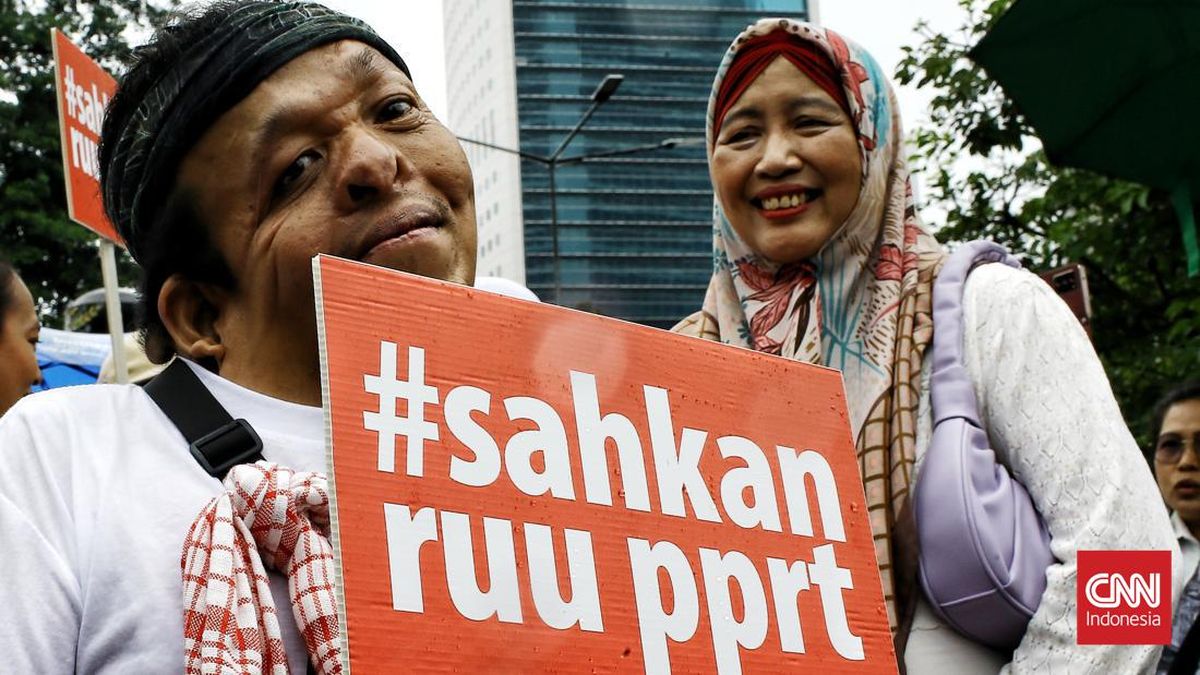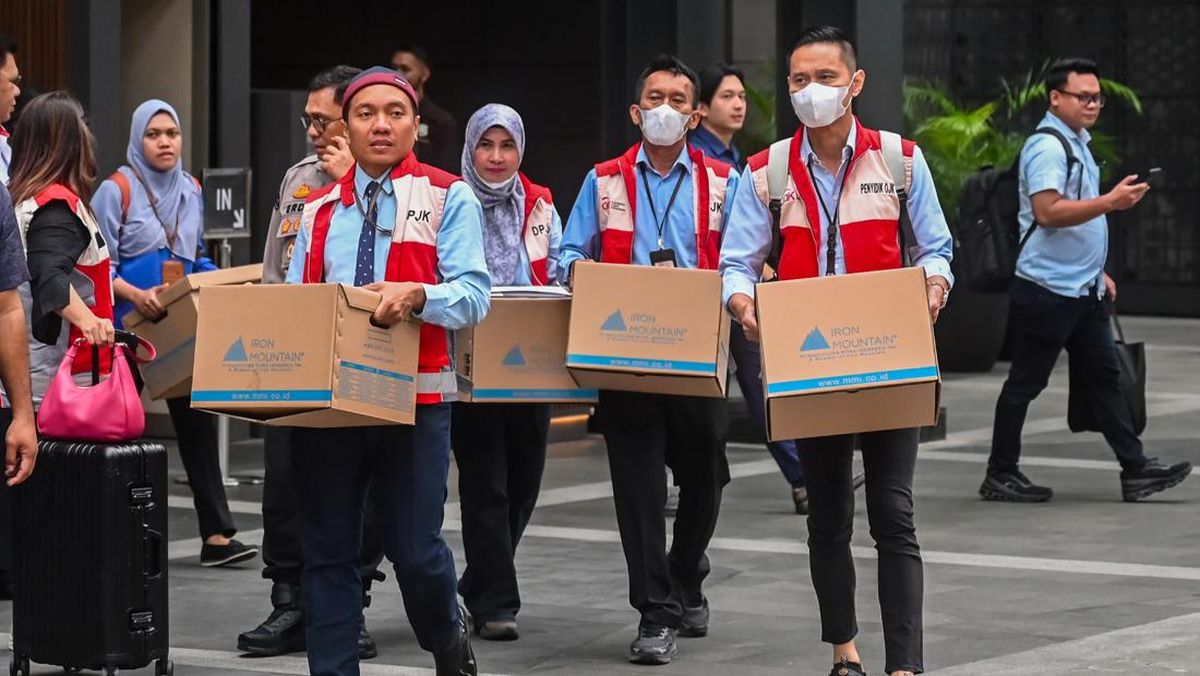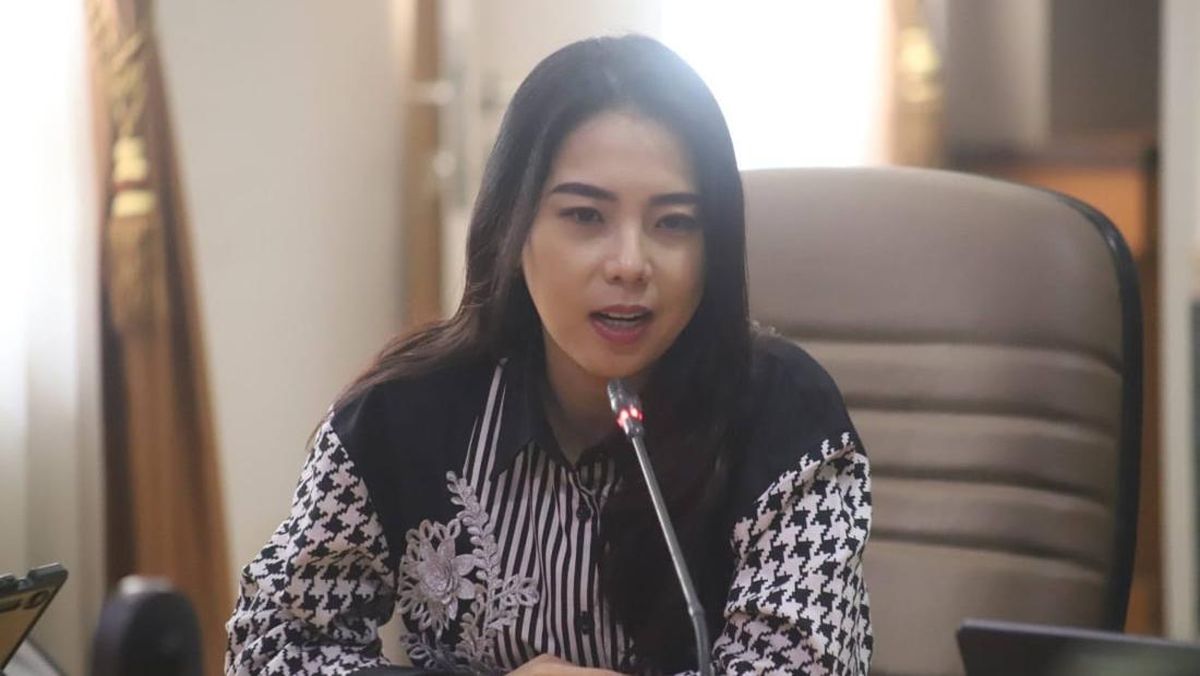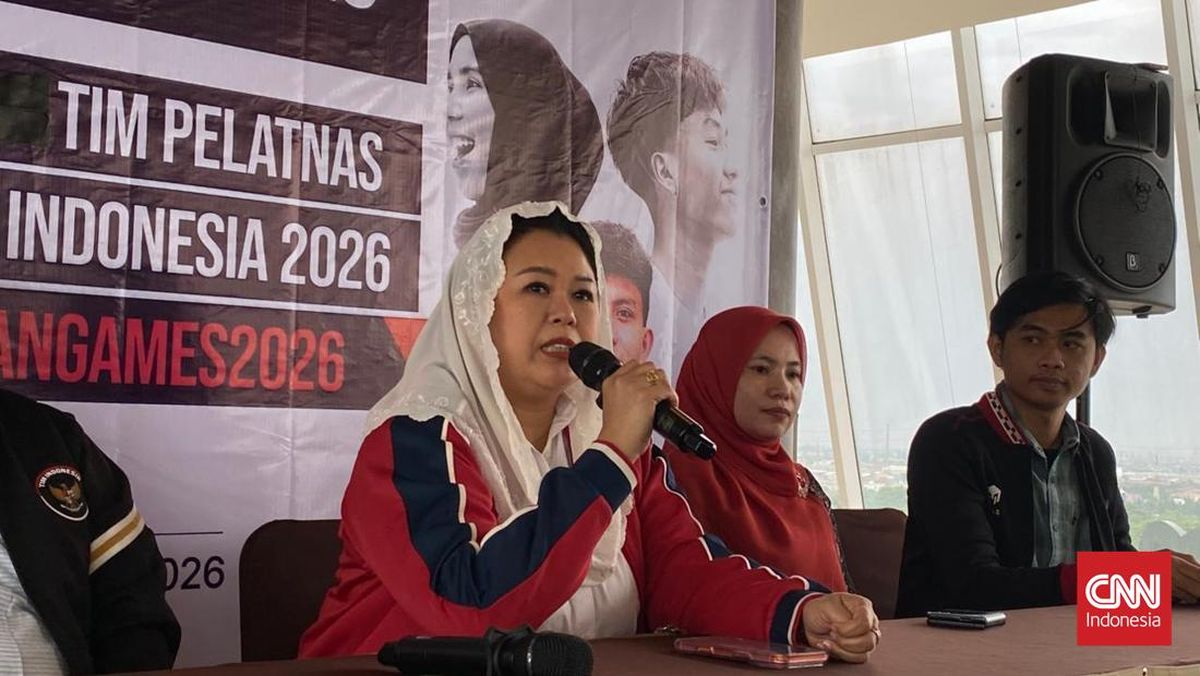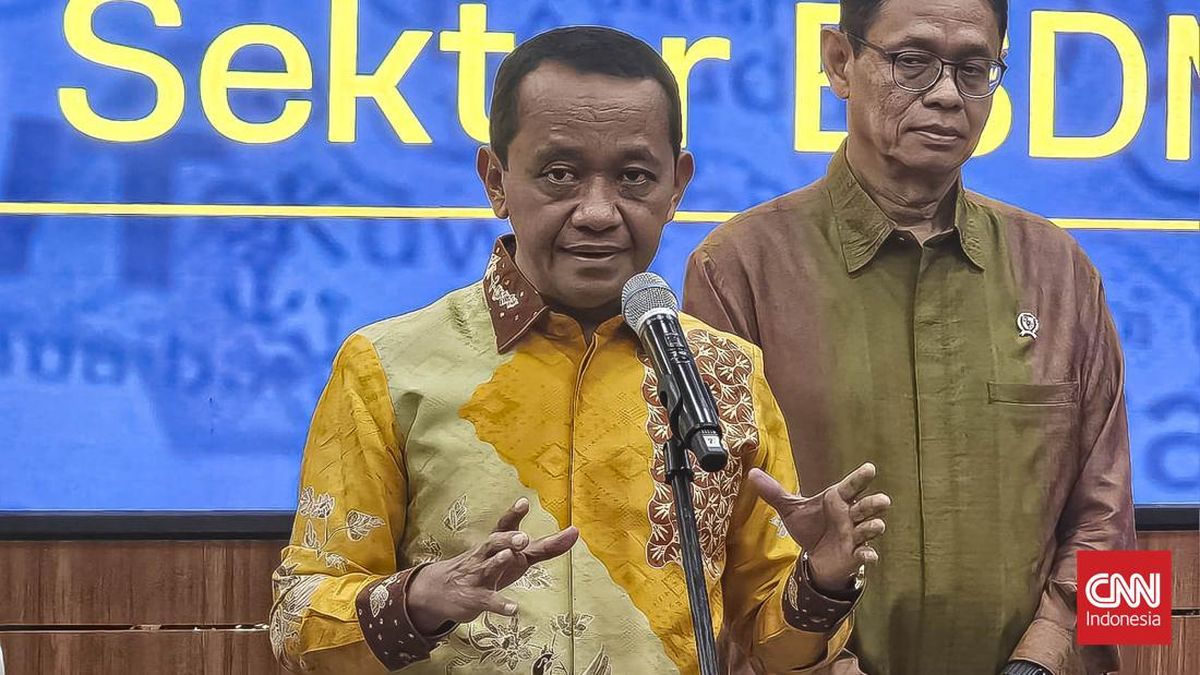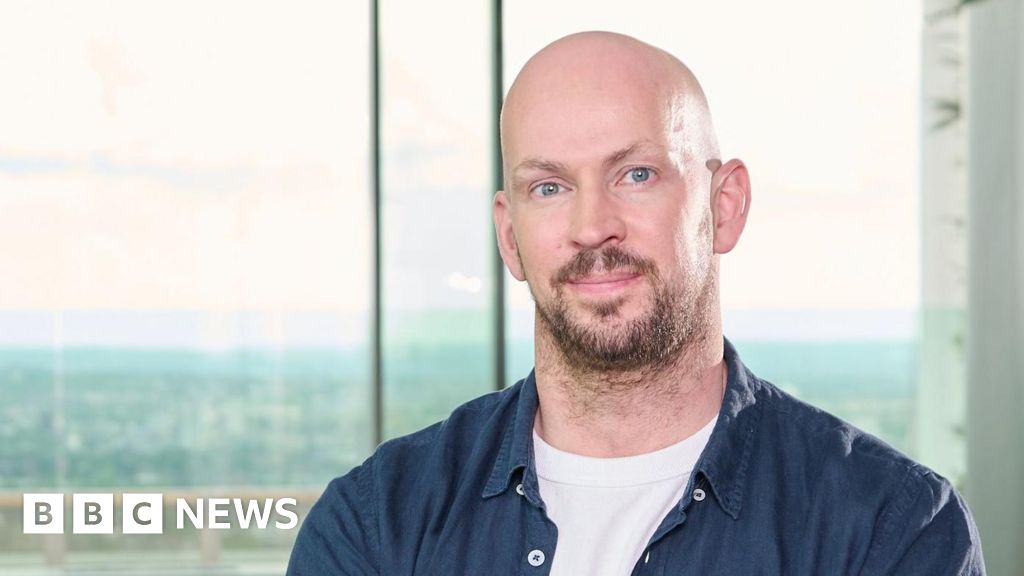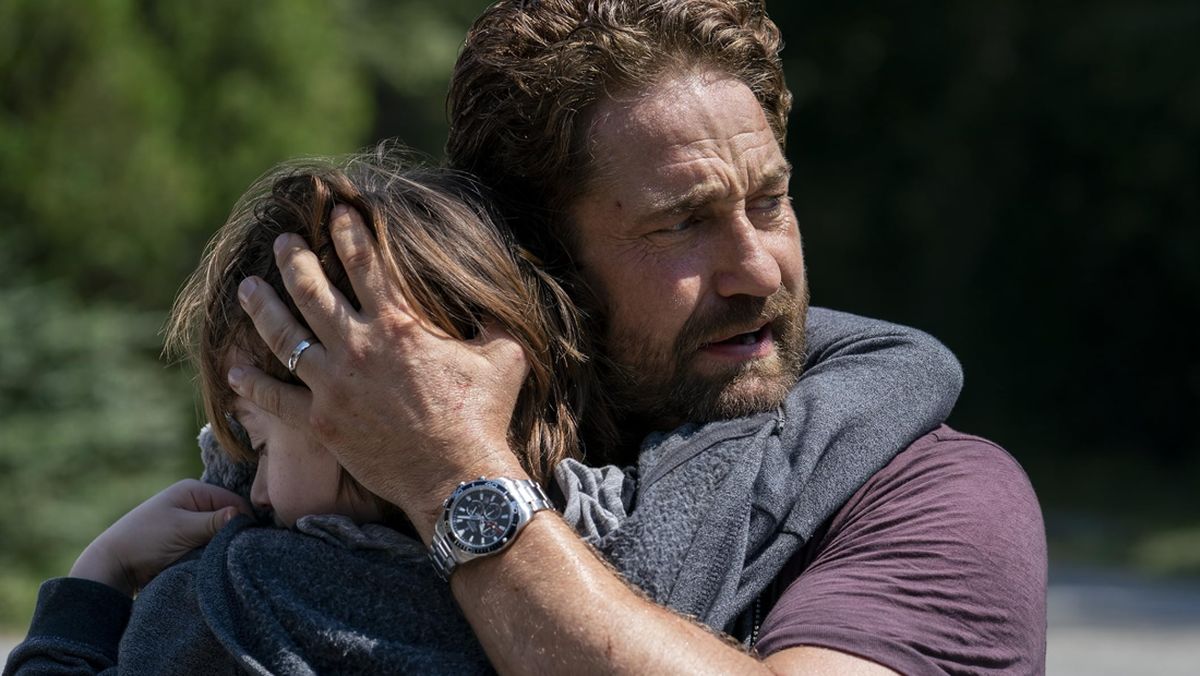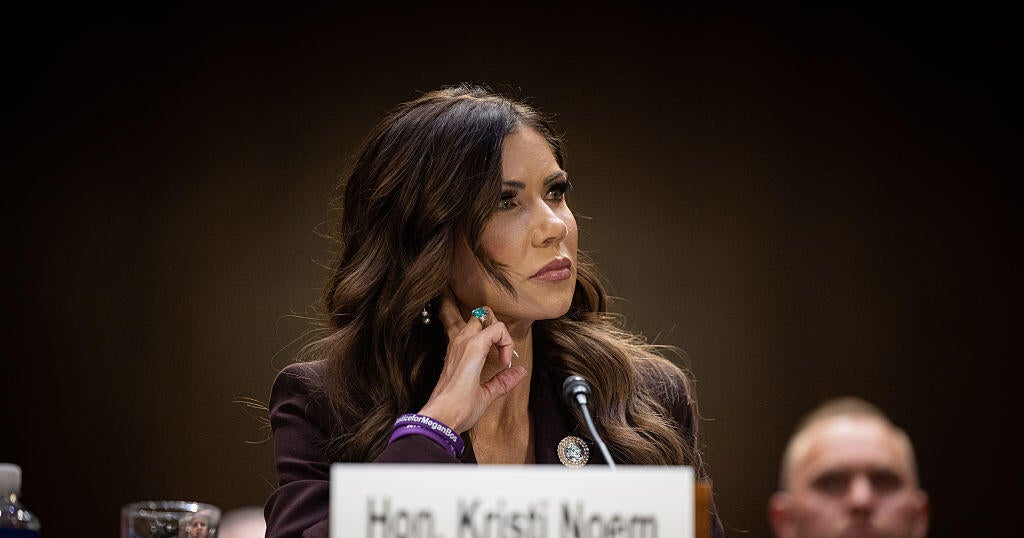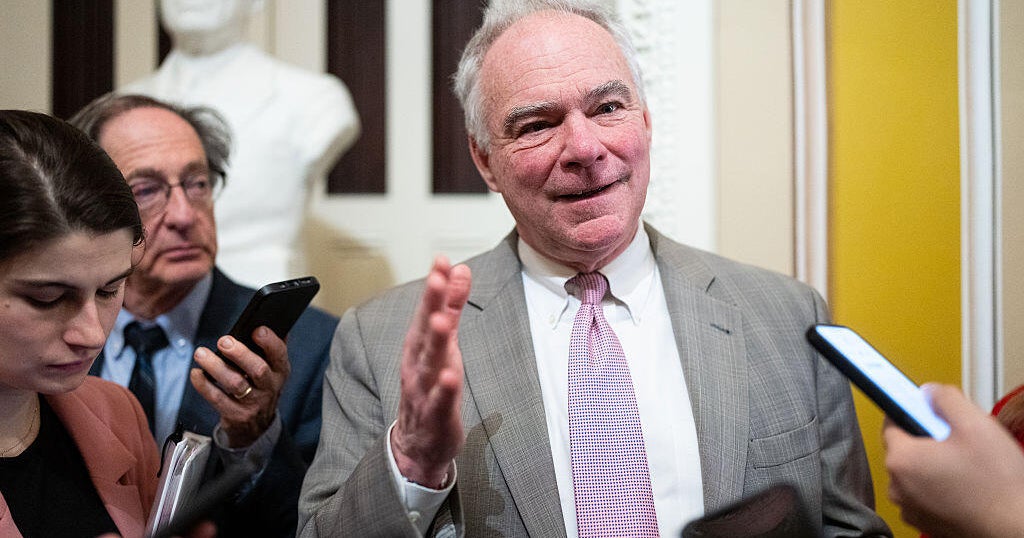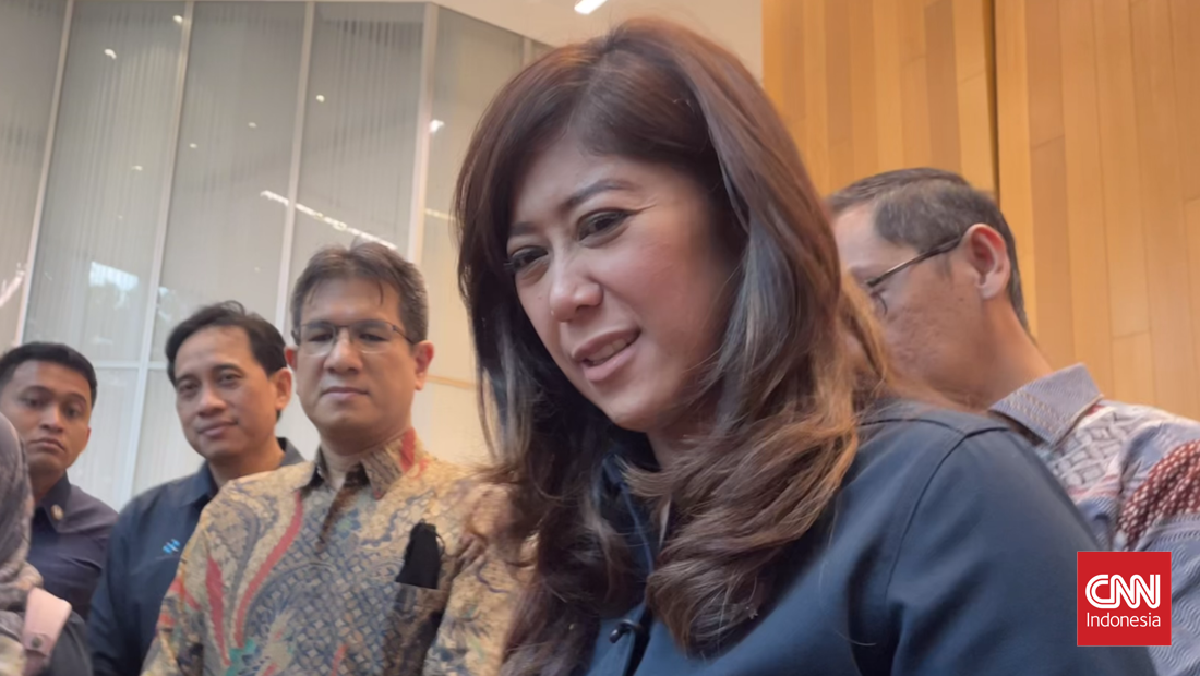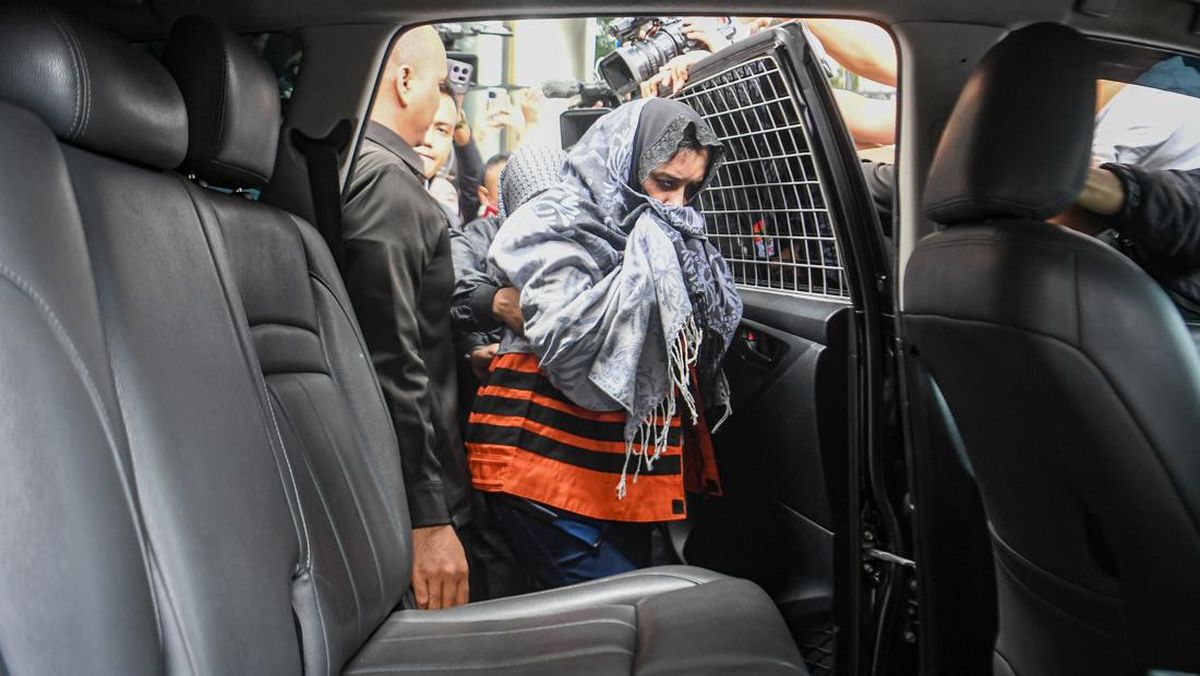On this "Face the Nation with Margaret Brennan" broadcast, moderated by Margaret Brennan:
- Kevin Hassett, White House National Economic Council director
- Maryland Gov. Wes Moore, a Democrat
- Virginia Gov.-elect Abigail Spanberger, a Democrat
- New Jersey Gov.-elect Mikie Sherrill, a Democrat
- West Virginia Gov. Patrick Morrisey, a Republican
Click here to browse full transcripts from 2025 of "Face the Nation with Margaret Brennan."
MARGARET BRENNAN: I'm Margaret Brennan in Washington.
And this week on Face the Nation: the longest government shutdown in history, and no end in sight. With each passing day, the impact of the government shutdown grows, with millions of Americans now facing major disruptions, from mass flight cancellations and delays because of staffing shortages to growing lines at food banks, as the Supreme Court lets the Trump administration withhold some money to fund food stamp benefits.
Frustration is mounting, and the blame game is on.
(Begin VT)
GOVERNOR JOSH SHAPIRO (D-Pennsylvania): When I see hungry people in my state who are hungry because of J.D. Vance's bull (EXPLETIVE DELETED) politics, that makes me angry.
SENATOR JOHN THUNE (R-South Dakota): Isn't that what you all have been saying? It's about leverage? This isn't leverage. This is the lives of the American people.
(End VT)
MARGARET BRENNAN: We will talk with Maryland's Democratic Governor Wes Moore and West Virginia's Republican Governor Patrick Morrisey about how they could fill the funding gap as safety net programs hang in limbo.
The president's top economic adviser, Kevin Hassett, will also join us. We will ask him what kind of impact this shutdown is having on our economy.
Plus:
(Begin VT)
DONALD TRUMP (President of the United States): The whole series of pricing and costs, the groceries and everything else, it was a con job. It was a con job. Affordability, they call it. It was a con job by the Democrats.
(End VT)
MARGARET BRENNAN: Where the president sees a con job, Democrats see a winning message in last week's elections. We will hear from two incoming governors, Abigail Spanberger of Virginia and Mikie Sherrill of New Jersey.
It's all just ahead on Face the Nation.
Good morning, and welcome to Face the Nation.
The Senate is in session today, a rare weekend workday for lawmakers, but there is still no deal to reopen the government.
We begin this morning with the director of the White House National Economic Council, Kevin Hassett.
This is now the longest shutdown in American history. The treasury secretary told us two weeks ago November 15 was the hard stop for any paychecks going to U.S. troops. Does that remain the point of exhaustion?
KEVIN HASSETT (Director, National Economic Council): Right. I think that that's about the right number.
And the problem is that, under the law, we're not allowed to spend money that hasn't been appropriated. And there is a law, the Antideficiency Act, that says that, if a government official spends money that isn't appropriated by Congress, which will only happen if the Democrats vote to open up the government, then you could even have criminal penalties.
And so people are very carefully studying the law and trying to get as much money out the door as is legal. And we're very glad that we found a way to get a lot of the SNAP money out, but it's really, really pushing the boundaries of the law, which is why the Supreme Court had to take that ruling from Rhode Island and put it on hold.
MARGARET BRENNAN: Until the lower court rules.
KEVIN HASSETT: Until the lower court goes back and comes up with a legal justification for what they said, because there probably isn't one, sadly, which is why we have to get this government open.
I mean, the fact is, Goldman Sachs, they have a top economic team, and they're estimating that we've already knocked about 1.5 percent off of GDP. I think that number is probably low if we keep going even a couple more weeks, because there's going to be a massive amount of air disruption, especially around the holidays.
And one of these things – every now and then, when we're talking economics, you and I, we talk about seasonal adjustments and things like that. But the fact is that Thanksgiving – that Thanksgiving time is one of the hottest times of the year for the economy. It's Black Friday, you know, and all that kind of stuff.
MARGARET BRENNAN: Right.
KEVIN HASSETT: And if people aren't traveling at that moment, then we really could be looking at a negative quarter for the fourth quarter.
MARGARET BRENNAN: Which is significantly disruptive to the president's agenda.
But to the point you were just making about food stamps – and we saw this Friday, a temporary stay by the Supreme Court that would block full food stamp benefits pending the lower court decision. The administration's argument, as you just referenced there, was that it would be illegal to move around funding and to tap the Section 32 account at the USDA.
But why not do this as a short-term patchwork solution? Because you have found ways with the military pay to stretch things out. Why prioritize in that case and not do so with food?
KEVIN HASSETT: Well, the president's job and all of our jobs is to uphold the law.
And when – I'm not a lawyer, but when the lawyers tell us…
MARGARET BRENNAN: But, arguably…
KEVIN HASSETT: … what we can do…
MARGARET BRENNAN: … that wasn't done with the military.
KEVIN HASSETT: But – but – but, yes, I think that the military is different because of the commander in chief stuff.
But the legal analysis suggests that we're doing everything by the book and then stretching things as much as we can, and basically trying to keep people from committing crimes, which, you know, you know about – in the season of lawfare, if you are a Cabinet secretary and you spend money that's not appropriated for that purpose in your Cabinet, then they can come back and they can take you to court.
MARGARET BRENNAN: But you're also making a political bet that Democrats aren't going to challenge paying the military. Do you really think Democrats would challenge and take to court paying people for their food stamp benefits…
KEVIN HASSETT: Let's just say that we've seen Democrats take…
MARGARET BRENNAN: … if – if Congress is going to fund it, when the shutdown ends?
KEVIN HASSETT: We've seen Democrats take to court people that – on really, really poor, poor charges, and so I think they're likely to do anything.
MARGARET BRENNAN: Well, it seems a political calculation is the point.
KEVIN HASSETT: Well, we – we don't have a political calculation. Our calculation is to get the government open, to get the food stamps to people, and to get people to be paid; 750,000 government workers aren't getting paid right now.
I know you're talking to the governor of Maryland in a minute. I'm sure his people are really hurting. Let's just get the government open, and then let's talk about things like the health care premiums, but do that through regular order.
MARGARET BRENNAN: Well – so, it sounds like you are saying the position is the same, open the government, then we'll talk about health care.
But the president, just in the past 36 hours, has put out a number of social media posts. It sounds sort of like he's proposing something in regard to health insurance payments. He said: "I'm recommending to Senate Republicans that hundreds of billions of dollars currently being sent to money-sucking insurance companies to save bad health care provided by Obamacare now be sent to the people so they can purchase their own, much better health care."
He also said they should terminate Obamacare. What does this alternative system look like? Because the entire standoff is about health care right now.
KEVIN HASSETT: Right. Well, the president is, you know, a beautiful tactician, a beautiful negotiator.
MARGARET BRENNAN: This is an offer?
KEVIN HASSETT: And what he – this is – you know, what he said, he's brainstorming and trying to help the Senate come up with a deal that can get the government open.
And one of the things you could do is, conservatives believe that they don't want the government to micromanage people's lives. And, you know, everybody believes that people should have health care, and so why not take the people who have higher health care premiums and just mail them a check and let them decide?
The reason why it could have an effect is that there are multiple tiers under the Affordable Care Act of different types of insurance. And it could be that people would rather have the money and go from, like, you know, this kind of plan to that kind of plan and save themselves a little bit.
MARGARET BRENNAN: Is this the…
KEVIN HASSETT: And so that's – that's, you know, basically giving the people an opportunity to make more choices than the government usually lets them.
MARGARET BRENNAN: Is this the Senator Cassidy proposal?
KEVIN HASSETT: I'm sure that Senator Cassidy and President Trump talked about it, but whether he agrees with everything that Cassidy – I haven't talked to him about it yet.
MARGARET BRENNAN: Well, does the Republican leader in the Senate accept…
KEVIN HASSETT: The president…
MARGARET BRENNAN: … this proposal?
KEVIN HASSETT: The president has – started this idea yesterday. I don't think that it's been discussed widely in the Senate yet.
MARGARET BRENNAN: So the president…
KEVIN HASSETT: It's the weekend.
(LAUGHTER)
MARGARET BRENNAN: The Senate's in session this weekend.
KEVIN HASSETT: Yes, the Senate is in session this weekend. And we are…
MARGARET BRENNAN: Because they're trying to end the shutdown.
KEVIN HASSETT: And here I am.
MARGARET BRENNAN: But this is not the Republican Party's position?
KEVIN HASSETT: Current – as of right now, it's not the Senate position, but the president thought it was something they should think about.
MARGARET BRENNAN: Well, he seems to be negotiating before the government's open.
KEVIN HASSETT: He's talking to his colleagues in the Senate on the Republican side.
MARGARET BRENNAN: But you would agree that there does need to be a deal on health care, that health care costs are too high?
KEVIN HASSETT: Well, I think that, if you look at the Affordable Care Act, these premiums weren't made permanent by the Democrats during the COVID emergency because they were worried about the budgetary costs.
And so if you look at the premium increases, they don't affect most people below two times the poverty line, three times the poverty line. But there are a lot of senior citizens that are above, like, around four times the poverty level, which with a husband and wife team, would be about $120,000, that are seeing really big premium increases.
And I think that everybody's going to want to think about what the next step for that would be, because are seeing – again, most people aren't seeing much of an increase at all, but the maximum increases you're seeing could be up to about $500 a month for seniors who have really costly plans.
MARGARET BRENNAN: The president has also been talking about affordability.
And our CBS polling shows the president's approval rating on the economy has dipped to 38 percent, the lowest of this term; 75 percent of those polled say he's not focusing enough on lowering prices.
But the president said this week Democrats are making it up and – quote – "Every price is down."
I'm sure you know the Consumer Price Index showed grocery prices are up nearly 3 percent in September from a year ago.
KEVIN HASSETT: Well, but let's go through – let's go through the facts.
MARGARET BRENNAN: Do you dispute that?
KEVIN HASSETT: Well, let – actually, yes, let's go through the facts, right?
So, inflation went up about 5 percent under President Biden. In President Trump's first eight or nine months, depending where we get the last number, it's up 2.7 percent. One of the big things that's hurting affordability is mortgages. The interest rate went up by about 4 percent.
MARGARET BRENNAN: This is grocery prices.
KEVIN HASSETT: No, grocery prices are actually down significantly under Trump. But here's the thing…
MARGARET BRENNAN: Well, it depends on which item.
KEVIN HASSETT: No, let me – I will just make a point, that if you look at the real reduction in spending power for Americans under Joe Biden, then it went down about $3,000, because we had up to 9 percent inflation, and then they went to the grocery store, they couldn't buy the things they're used to buying.
The real spending power adjusted for inflation under President Trump has gone up about $1,200 so far this year; $1,200 is not $3,000. And so people are right to feel stretched, but we're making progress. And if you look at all the things, the positive things, about the economy, industrial production just about at an all-time high, capital spending about at an all-time high…
MARGARET BRENNAN: Right.
KEVIN HASSETT: … GDP growth right now about 4 percent, then that shows that the income growth that we need to get more affordability is on the path to happening.
And the bottom line is that the last Consumer Price Index surprised down. It was lower than expected. And it was actually – would have been even lower, because there was a refinery shutdown that caused it to go slightly higher. So we see inflation under control and the economy booming.
But we understand 100 percent why people are still hurting, because we haven't made up all the room that was lost under Joe Biden.
MARGARET BRENNAN: So are you comfortable with 3 percent inflation?
KEVIN HASSETT: I'm comfortable with 2 percent inflation.
MARGARET BRENNAN: So, no, you're not happy where things are now?
KEVIN HASSETT: I think – well, they have got to go down a little bit more, but there – but the point is that inflation is like the Queen Mary, my friend Alan Greenspan used to say.
So when you go from almost 4 percent that we had in January…
MARGARET BRENNAN: Yes.
KEVIN HASSETT: … down to the mid 2's, then that's a trajectory that usually has momentum.
MARGARET BRENNAN: So, the St. Louis Fed found tariffs account for half-a- percentage point of the annual inflation rate. How much do you think the tariffs are hiking prices?
KEVIN HASSETT: You know, there's a couple of papers out there that say that prices went up by between two-tenths and five-tenths.
And the thing to remember, if those papers are true, is that that's a level adjust, because the tariff goes in, and then the tariff is just there, so it doesn't affect inflation in the future. So, it would be a one-time level adjust.
Our estimates at CEA are much closer to zero, and it's all based on modeling and assumptions about elasticities and things. But for the most part, the one way you can see it is, you could look at the price of imported goods, and the price of imported goods, CEA put a report out, has actually been declining under tariffs, because what happens is that the Chinese want to sell us lots of stuff.
MARGARET BRENNAN: Yes.
KEVIN HASSETT: And there's a tariff, and so they cut their prices so that they can still have a larger market share in the U.S.
MARGARET BRENNAN: Kevin Hassett, always good to have you here in person.
KEVIN HASSETT: Great to be here, of course. Thanks.
MARGARET BRENNAN: We have to leave it there for now.
We'll be right back in a minute. Stay with us.
(ANNOUNCEMENTS)
MARGARET BRENNAN: We're joined now by the Democratic governor of Maryland, Wes Moore.
Good to have you here in person.
GOVERNOR WES MOORE (D-Maryland): Great to be with you. Thank you.
MARGARET BRENNAN: So, Governor, one in eight Americans use food stamps. In Maryland, you have about 700,000 people, as I understand it, who rely on this for food aid.
Since the Supreme Court put that stay in place on Friday, do you know whether that money will actually be available to residents in your state to buy food?
GOVERNOR WES MOORE: We don't know, and that's why we're not waiting.
It is why, just in the past few days, I have authorized over $10 million that's going towards heating assistance for people in the state of Maryland. Over $10 million has gone to our Maryland food banks, that we have made public transportation free for all of our federal workers, because they, in many cases, are going to work and not being paid.
And I have also authorized $62 million to go towards SNAP to make sure that SNAP is not going to be interrupted for the people of Maryland for as long as we can, despite the fact that we are waiting for the president of the United States to finally do his job.
We are watching the president who is literally breaking the law so people can starve, but we're not going to sit there and tolerate in our state.
MARGARET BRENNAN: Well, you just heard Director Hassett say that they are trying to follow the law, which is why they went to the courts.
The USDA did say they were going to work towards implementing full payments, and then there was this Supreme Court stay put in place. So, do you have clarity on when money might be coming through at all? Like, what's the federal government telling you?
GOVERNOR WES MOORE: There is no clarity – clarity at all.
In the past – in the past six days, we've received four different measures of guidance from the USDA and from the Trump administration about how to handle it, where, initially, it was said, well, listen, we want the states to help to support, and despite the fact that this program was built as a partnership between the federal government and the states, where the federal government were really helping to underwrite these costs for people.
And then once we decided to step up and say, we are going to make sure that our people are going to be OK, we have now…
MARGARET BRENNAN: You are fronting the money?
(CROSSTALK)
GOVERNOR WES MOORE: That we are going to front the money.
MARGARET BRENNAN: OK.
GOVERNOR WES MOORE: We've now received guidance saying the states are going to be punished for fronting the money.
There is a chaos, and it is an intentional chaos, that we are seeing from this administration, and where they have money for everything. They got money to fight wars. They got money for ballrooms. They got money for everything.
But when it comes to supporting the American people, that's now when they are crying, well, we're broke, and that's not what the law requires us to do.
MARGARET BRENNAN: As you know, the White House says those – those sponsorships for the ballroom are separate from government money.
GOVERNOR WES MOORE: Yes.
MARGARET BRENNAN: But on – on the issue, though, of the shutdown itself, on Friday, we did see the Democratic leader, Schumer, offer to end it if Republicans agree to a one-year extension of the Obamacare health care subsidies.
Republicans said that's a – that's a nonstarter. This is going to make – this is a big issue for the midterms. But would you – would you tell the Democrats on Capitol Hill to dig in, that the pain that the people who are living in your state is somehow going to be worth it in the end for an extension of a tax credit?
GOVERNOR WES MOORE: There is no pain that is worth it. Our people are hurting, and they're hurting because of these games that we continue to see from Washington, D.C.
MARGARET BRENNAN: But would you tell Democrats, just take the vote, open the government, then keep negotiating health care?
GOVERNOR WES MOORE: I want the government reopened now. There is no state that is dealing with more of an impact from this than the state of Maryland.
We have over 260,000 federal workers within our state, that, even before the shutdown, Donald Trump had fired over 15,000 Maryland workers, federal workers, more than any other state in this country.
But I also know that saying that a prerequisite for having the federal government open shouldn't be kicking up premiums by 90 percent, by kicking people off of health care. There's a bar – there's a – there's a – there's a barbaric nature to this ask and this request, particularly when we're watching how the Trump – you know, the Trump administration, they have the White House, the House and the Senate.
They can get this deal done by just simply making a phone call, but they're allowing this pain to exist.
MARGARET BRENNAN: But Democrats also have a promise from the Republican leader in the Senate that he'll talk about health care if they reopen the government.
Why isn't that good enough?
GOVERNOR WES MOORE: Why – why…
MARGARET BRENNAN: Would you tell your members of the Democratic Party to - - to relieve the pain in the immediate term from your state?
GOVERNOR WES MOORE: I would tell them that we need to ensure that reopening the government does not mean kicking my people off of health care, that when we're spending time right now over in Western Maryland and Appalachia – and I'm proud to serve as the as the – as a co-chair of the Appalachian Regional – Regional Commission, where we're serving Appalachia, all throughout not just Maryland, but throughout West Virginia, throughout Tennessee and Pennsylvania.
And when we're speaking to our folks out there who are already watching their premiums jump, who are already watching everything become more expensive because of these policies, I don't think that anybody, whether in Western Maryland or any part of my state, would say, yes, it's OK, if you just watch my health care go away.
MARGARET BRENNAN: Well, health care prices are going up even in the private market for a lot of different reasons.
GOVERNOR WES MOORE: Absolutely.
MARGARET BRENNAN: But let me ask you about what's happening in Maryland.
This past Tuesday, out in California, we saw this Proposition 50; 64 percent of California voters came out in support of what Gavin Newsom put out there with redistricting. This would allow him to charge ahead with plans to potentially gain an additional five Democratic congressional seats.
This is gerrymandering. You are looking at midterm redistricting in your state as well. Of eight districts, you only have one Republican. Do you really think Maryland is drawn in an unfair way right now?
GOVERNOR WES MOORE: I think that the reason that I ordered the Governor's Redistricting Advisory Commission is because I want to make sure that we can have a bipartisan group being able to look at the maps in the state of Maryland. This is something that happens every single…
MARGARET BRENNAN: You don't think these maps are fair now?
GOVERNOR WES MOORE: This is something that happens every single decade. And if other states are going to have this process and go through this – go through this journey of identifying whether or not they have fair maps in a mid-decade cycle, then so should Maryland.
I'm just not sure why we should be playing by a different set of rules than Texas or than Florida or than Ohio or all these other places.
MARGARET BRENNAN: Because you say those states are being unfair. So why adopt unfair policies in your state?
GOVERNOR WES MOORE: This is just simply about making sure that we can have fair and representative maps and we can go through our process.
It's the reason that I have – I put together this commission, where my job is not to draw the maps, that what we've just simply said is, I want this bipartisan commission to be able to actually speak with the people and to be able to go through their process and just simply say that, if other states are going to go through this process, that we're not just going to sit on our hands because Donald Trump tells us to, that that's not the way this process is going to work.
MARGARET BRENNAN: So, your State Senate president, Democrat Bill Ferguson, says this could backfire.
He wrote: "I believe mid-cycle redistricting twist rules for potential short-term advantage while undermining trust in institutions and ultimately democracy. It's too risky and jeopardizes your state's ability to fight against the radical Trump administration."
How do you make sure it doesn't backfire? Do you accept a map that gives you more Republican districts? You're not going to do that.
GOVERNOR WES MOORE: I think fighting for democracy is never risky. I think that's our job as leaders and elected officials. And…
MARGARET BRENNAN: So, you're not committing to going with the outcome of what this commission provides to you?
GOVERNOR WES MOORE: No, I think the commission – what I want is for the commission to do their work and the commission to do their job. My job is not to draw the maps.
And, frankly, it's the state legislature's job to decide to vote on it. That is not my responsibility. My job is to make sure that I'm protecting the democratic process. And the Senate president and I, we agree on the crisis that Donald Trump has put us in.
He agrees on the fact that we have watched an administration that's using the Constitution like it's a suggestion box. But what I'm simply – and where we – where we differ is the urgency that this moment requires, the fight that this moment requires.
And I personally am someone who is not going to allow Donald Trump to determine whether or not Maryland follows this idea of saying, are we going to do everything we can to make sure we're preserving our democracy?
MARGARET BRENNAN: Governor Moore, thank you for your time this morning.
GOVERNOR WES MOORE: Thank you so much.
MARGARET BRENNAN: And we'll be right back with a lot more Face the Nation, so stay with us.
(ANNOUNCEMENTS)
MARGARET BRENNAN: We turn now to the Democratic governor-elect of Virginia, Abigail Spanberger. She joins us this morning from Glen Allen, just outside of Richmond.
Welcome to Face the Nation.
ABIGAIL SPANBERGER (D-Virginia) (Governor-Elect): Thank you so much for having me.
MARGARET BRENNAN: Well, Virginia boasts one of the highest numbers of federal workers in the country, and, as you know, many of them are not getting paid.
You know, some in your party look at your election on Tuesday and the win in New Jersey and say that is permission to hold the line in Congress and refuse to fund the government or fold on the shutdown. Should congressional Democrats view your victory that way?
GOVERNOR-ELECT ABIGAIL SPANBERGER: Absolutely not.
Our victory was a victory that was based on a campaign that was addressing concerns related to costs and chaos. My campaign across the past two years had been focused on hearing the challenges that people are facing all across Virginia.
It's rising costs in health care, housing, energy, and it's the chaos coming out of Washington that has been impacting Virginians so severely, beginning with the DOGE efforts, of course, continuing with chaotic trade policies, and now in this government shutdown.
Virginians need to and Virginians want to see the government reopen. And my expectation is that we will see a Congress, a Senate, and ultimately a president, driving us in that direction.
MARGARET BRENNAN: But should congressional Democrats open the government and then talk about health care?
GOVERNOR-ELECT ABIGAIL SPANBERGER: The government needs to open, and it needs to open immediately.
We need the president to demonstrate leadership, bringing people together, endeavoring to get through whatever negotiations need to get through, whether it's before or after. My priority is the – is focusing on the needs and the – the devastation, frankly…
MARGARET BRENNAN: Right.
GOVERNOR-ELECT ABIGAIL SPANBERGER: … that more than 300,000 Virginians are facing.
And that's just the federal employees, government contractors. They will never get made whole. The entirety of Virginia's economy is impacted by the shutdown, just as we've been impacted by DOGE attacks, and the government needs to reopen quickly.
MARGARET BRENNAN: Well, and that's why I'm asking, because there are, what, 825,000 enrollees on food aid in the SNAP program. They're in limbo right now.
GOVERNOR-ELECT ABIGAIL SPANBERGER: That's right.
MARGARET BRENNAN: You have immediate pain. So, at what point do you weigh that against the potential of health care premiums? I mean, this pain is very real and very acute for people in your state right now.
GOVERNOR-ELECT ABIGAIL SPANBERGER: And it's been going on now for weeks, weeks too long. The government needs to reopen because, in addition to the pain that we are already seeing federal employees and government contractors facing….
MARGARET BRENNAN: But eight Democrats could cross the aisle and do so.
GOVERNOR-ELECT ABIGAIL SPANBERGER: We absolutely need everyone to vote to open the government.
And that's not to say that the challenges we're facing within our health care system are not also immediate and acute. Even the passage of the One Big Beautiful Bill will have catastrophic impacts on Virginia, taking $26 billion out of our health care, leading to the closure of at least six rural hospitals.
We've already seen three rural clinics announce their closure.
MARGARET BRENNAN: Yes.
GOVERNOR-ELECT ABIGAIL SPANBERGER: Hundreds of thousands will lose their Medicaid.
MARGARET BRENNAN: Let me…
GOVERNOR-ELECT ABIGAIL SPANBERGER: And so the impacts on health care are already catastrophic.
MARGARET BRENNAN: I want to…
GOVERNOR-ELECT ABIGAIL SPANBERGER: But we cannot compound that pain by keeping the government closed.
MARGARET BRENNAN: Let's take a break and finish this on the other side of it.
Please stay with us.
(ANNOUNCEMENTS)
MARGARET BRENNAN: And we will be right back with a lot more Face the Nation.
Stay with us.
(ANNOUNCEMENTS)
MARGARET BRENNAN: Welcome back to "FACE THE NATION."
We return to our conversation with Virginia Governor-elect Abigail Spanberger.
Governor-elect, artificial intelligence has created a really big demand for these data centers. And Virginia has the world's largest concentration of them. Power bills are up nearly seven percent in your state over the past year. Is that driven by the A.I. boom? And, if so, how do you offset those rising energy costs?
GOVERNOR-ELECT ABIGAIL SPANBERGER (D-VA): Well, what we've seen in the – in the research so far is that it is not – the increase costs are not driven by the increase in data centers. There's, you know, some bad energy policies in some of our neighboring states that have driven up prices, particularly in southwest Virginia.
But looking towards the future, we have to be clear-eyed about the fact that we will have an energy crisis headed into the future. And so here, on the ground in Virginia, we currently have a rate (ph) case where it will be important that large-scale energy users, particularly data centers, that the public know that they are paying their fair share for the energy that they are using. And we have to increase our energy production here at home so that we can meet the demand certainly of larger-scale energy users but also of increased demand from our communities.
And it is a real challenge that we have to get ahead of. And that's why among the first affordability plans that I laid out was one focused on energy. It's a challenge that is pervasive across our communities, and particularly acute in southwest Virginia.
MARGARET BRENNAN: Just a few days ago Cornell University reached a $60 million deal with the Trump administration in order to see their federal funding restored. This is the fifth such deal since the administration began this pressure campaign on universities.
I know you went to University of Virginia, as did I, and must be following that UVA cut deals with the government, including kicking out the president of the school. You called that extortion. But now, as governor, are you going to have to play ball with the Department of Education and the Justice Department in order to keep federal government funding going?
GOVERNOR-ELECT ABIGAIL SPANBERGER: So, it should – it should shock everyone that universities, public and private, are receiving demands from the federal government and that dollars – research dollars are being withheld, that our universities are under attack. And certainly what we've seen in the case of the University of Virginia, of a popular, experienced, excellent president, was pushed out. And on the ground here we did not see our governor, in any way, step up in defense of our university.
And the idea that the federal government would be withholding federal dollars, you know, including dollars already appropriated by Congress for research in order to compel universities to take certain actions, it is absolute federal government overreach. And as governor, I will be clear- eyed about ensuring that we have structures in place, including boards of visitors across our universities, that want to defend academic freedom and, frankly, the viability and vitality of extraordinary institutions, like the University of Virginia.
MARGARET BRENNAN: I want to ask you about your party. In 2020, when Democrats lost House seats, you said "we need to not ever use the word socialist or socialism ever again." There are some who look to Tuesday's win in New York City of a Democratic socialist and say that your party's actually being rewarded for echoing progressive policies. Does that victory create a branding problem for Democrats?
GOVERNOR-ELECT ABIGAIL SPANBERGER: Well, certainly, you know, I'm excited about what we did here in Virginia on Tuesday in – I campaigned addressing – wanting to address the issues of costs and stopping the chaos. I'm a capitalist. I'm a Democrat. And I won by 15 points in Virginia. You look to New Jersey, and a similar story in Mikie Sherrill's win, now the governor- elect there.
And so I think, you know, certainly we're a big tent party, but when I look at what led to the success that we had here and the – you know, the mandate for real governance here in the Commonwealth of Virginia, it was based on what I campaigned on, the efforts to really address the challenges that people are facing in a day-to-day basis. And – and now it's on us to deliver and prove that really truly the mandate that we have to work on lowering costs and strengthening our schools and keeping our communities safe and creating steady leadership here in the Commonwealth of Virginia particularly in light of the chaos coming out of Washington, that not only was it a winning message, but the winning path towards governance.
MARGARET BRENNAN: Thank you very much for your time this morning, Governor- elect Abigail Spanberger, the – who will be the first female governor ever of the state of Virginia.
We'll be right back.
(ANNOUNCEMENTS)
MARGARET BRENNAN: On Friday, we spoke with one of the other big Democratic winners last Tuesday, New Jersey's Governor-elect Mikie Sherrill, who is currently a member of Congress, and asked whether given her new role as the chief executive of a state hard hit by the shutdown she would support the Democratic Party position of blocking government funding until Obamacare subsidies are extended.
(BEGIN VIDEOTAPE)
GOVERNOR-ELECT MIKIE SHERRILL (D-NJ): Well, it's really important that we keep up that fight because we see in the market costs going up by 175 percent if the Republicans don't address this health care crisis. We know that there have already been huge cuts in the one big, beautiful bill to people's access to health care.
And, you know, when we look at this crisis, so much of it is really imposed by Donald Trump. So, there is money for him to put towards SNAP funding that he's refusing to do, even though courts are demanding it. Now he's kind of slow walking it, making it very difficult for states to do that illegally. And courts are holding him accountable.
We see with air traffic control problems, some of this is because the administration hasn't moved quickly enough at Newark in some of the problems we had over the summer. So, we're already down by 25 percent. Now, with this crisis going on, because the president refuses to open up the government, we're seeing another 10 percent in flights being derailed, and we see continued late and delayed flights.
So, it's time that the government – that the Trump administration, that Republicans in the House and the Senate get serious about opening up government.
MARGARET BRENNAN: When we look at our recent polling, a majority of Americans are really concerned that this shutdown is going to hurt the overall economy. How can you justify the damage?
GOVERNOR-ELECT MIKIE SHERRILL: Well, it truly is hurting the economy. And you can't justify the damage, which is why the president and the Senate and Republican majority in the House need to get this government open. And they need to do so in a way that's going to stop punishing the American people.
I think what we saw with this election is the American people need – you know, are really demanding that our federal government operate in a way that is going to stop punishing them economically. I'll tell you, I ran on affordability, on the fact that I'm going to fight in Trenton to make sure we're cutting through red tape and permitting to drive down costs. But also that I'm going to continue to fight that – for Washington to address things like the tariff program, which is raising costs on everything from a cup of coffee to groceries, to fight the one big beautiful bill, which is continuing to raise costs on education, innovation, housing, health care, to continue to fight this government shutdown so that we can really address health care needs here in the state.
MARGARET BRENNAN: You keep saying it's up to the president to reopen the government, but you withheld your own vote on that continuing resolution, that short-term funding bill. And over in the Senate, Leader Thune is tearing into Democrats for that decision. He said, "it shows you're not caring that there are men and women in uniform frequenting food banks because of the shutdown, not making represent payments, trying to borrow." He said Dems view this as leverage. And he used that word because it was your House leadership, Katherine Clark, justified withholding votes to end the shutdown, saying, that's one of the few parts of leverage that Democrats have.
How do you respond to this accusation that it's actually Democrats who are being heartless here?
GOVERNOR-ELECT MIKIE SHERRILL: Well, when you have the Republicans that have the presidency, they have the majority in the Senate, they have the majority in the House, they've even – many would day, including myself, taken over the court system, then they have a responsibility to open up this government. And I have to tell you, as a veteran myself, I know how devastating that is.
MARGARET BRENNAN: Well, it was – it was with Clark who said those votes are leverage.
GOVERNOR-ELECT MIKIE SHERRILL: Leverage to serve the American people. I mean we see again and again these Republican attacks on everything from health care – look, if they don't fund the Affordable Care Act, costs are going to go up by 175 percent for people here in New Jersey at already high levels. That is going to kick so many people off health care. That's on top of the huge Medicare cuts that we're seeing in the one big beautiful bill, on top of the tariff cuts that are raising grocery prices everywhere, on top of the fight he's in, which is raising gas prices.
So, again and again, we're seeing the Trump administration punishing people. And these Republicans have got to come to the table and they've got to start really working for the American people. And this election showed that.
MARGARET BRENNAN: But when you were talking about the extension of the health care subsidies, why isn't the promise to hold a vote on those health care subsidies enough for Democrats to vote to reopen the government?
GOVERNOR-ELECT MIKIE SHERRILL: So, we are working hard to address the concerns for the American people. And Republicans again and again are refusing to address that. So, right now this is part of how we get the government open. And they should do it right now.
MARGARET BRENNAN: Well, the – Leader Thune said he'll hold a vote.
GOVERNOR-ELECT MIKIE SHERRILL: I think we have seen what the promises that Republicans have made have been worth. What he needs to do is actually put the subsidies in. We can serve the American people. We can drive down health care costs. And that's really key.
MARGARET BRENNAN: Let's talk a bit about your election. As you said, the economy was front and center for you. Energy prices in particular you focused in on. In New Jersey, they're up 19 percent over the past year versus six percent nationwide. I know you want to declare a state of emergency day one, but what does it actually mean? How quickly will prices come down?
GOVERNOR-ELECT MIKIE SHERRILL: So, the state of emergency will freeze rate hikes because there are some rate hikes that are set to come into play in the next several months. And I, you know, I'm not going to allow those to be put on the back of the New Jersey rate pair. And we see that the can has been kicked down the road by too many people.
So, the utility companies have already come to the table so say, OK, let's negotiate those rate hikes. We have money that comes in through the BP (ph) view (ph) to defray the costs. But what's really going to also happen is very quickly I'm turning to adding a lot of power to our grid. Right now, PJM, that's our regional grid operator, has really screwed up the market for various reasons and so every electron we produce in New Jersey will defray the costs of electricity we have to buy on the market. So, that's why immediately I'm going to cut through red tape and permitting delays to get solar done. We're going to continue to build out battery storage. And then, in the first budget, we will expand modernization of our natural gas facilities and, in the long term, nuclear.
MARGARET BRENNAN: You said on CNN this past week that "there's a feeling working people have not been heard" and that "there's too much caution and mediocrity in the Democratic Party today." What did you mean by that?
GOVERNOR-ELECT MIKIE SHERRILL: That as I was talking to people across this state, thousands of people, they wanted to see an agenda to get their costs down. And something that was going to take place quickly. As I said, you know, I'm not writing a strongly worded letter, I'm not doing a ten-year plan, I'm on day one declaring a state of emergency. Not just because I'm furious that, you know, as too many people have failed New Jersey rate payers, that costs are being dumped on them. Yes, that is a huge problem for me that I'm addressing. But it also, I think, conveys that sense of urgency that I feel to work for the people of New Jersey so that they know that this is a day one issue for me.
They also want to see somebody, though, that has their backs because they know that these tariffs are raising costs. They know that the one big, beautiful bill is going to take away their health care. They know that a tax on the Gateway Tunnel project are going to raise costs here and really cut into job opportunities. So, they want to know that whoever is governing is going to be focused on governing for them, not a party of one like Donald Trump.
MARGARET BRENNAN: Well, your criticism there was of fellow Democrats, as I understood it. But let me ask you about Speaker Emeritus Nancy Pelosi. She just announced that she is going to be leaving Congress. When I spoke to her last on this program, she indicated that she knows it's a problem recruiting new candidates, in part because of the environment we're in, including just how nasty our politics are and the security threats. And she said that's discouraging in particular women who fear the impact on children.
What do you say to those considering for office right now? Are you seeing that, that female candidates are fearful of doing what you just did?
GOVERNOR-ELECT MIKIE SHERRILL: Well, we worked very hard here in New Jersey to really build out a future and an idea that's going to bring everybody in and really working hard to keep people safe. Public safety is a huge somehow for me and for people across the state as we double down on our constitutional protections, freedom of speech, freedom of assembly, et cetera. But it is a scary time.
I remember, right after I won my primary, the assassinations in Minnesota took place. And here I have four kids and I'm suddenly thinking, oh my gosh, am I putting them at risk by running?
MARGARET BRENNAN: Yes.
GOVERNOR-ELECT MIKIE SHERRILL: But, you know, what I think most of us are weighing is, as moms, if we're candidates is, what is my kids' future look like if I don't run? And that's on balance, I think, people are choosing to run. I see women across our state running. We have, you know, people newly getting into races and also some of the great powerful women in our state continuing to serve. So, I don't think it's dissuading them. But it certainly is on our minds as we are thinking about, how are we going to keep our families safe as we are running for elected office.
MARGARET BRENNAN: Well, Congresswoman, we'll be watching as you transition into being the next governor of New Jersey.
Thank you for your time today.
We'll be right back.
(ANNOUNCEMENTS)
MARGARET BRENNAN: We go now to the Republican governor of West Virginia, Patrick Morrisey, who joins us from Charleston.
Good morning to you, sir.
GOVERNOR PATRICK MORRISEY (R-WV): Hey, good morning, Margaret. Good to be with you.
MARGARET BRENNAN: So, your state has one of the highest poverty rates in the country, nearly 16 percent of residents rely on food stamps, that SNAP program we've been talking about. In fact, the very first food stamp pilot program began in West Virginia back in the 1960s.
Given the current shutdown and how rural your state is, I wonder, are you able to get help to those who need it right now?
GOVERNOR PATRICK MORRISEY: Absolutely. Look, great question. I do want to start out, first of all, thanking you for having me on the program.
One piece of information coming out of West Virginia, we've had a mining accident, and we have teams down looking for a missing miner. I just want to say, that our hearts and prayers go out to the family of that miner. We're doing everything we can to locate that person.
Now, when it comes to the government shutdown, we're doing everything we can to help those in need. At the very beginning, I started standing up for the federal workers, and we announced that to address some of the concerns with food, we were going to send significant dollars to the food banks by tomorrow. That will be up to $13 million. I've activated the National Guard. And we're doing things to make sure that no one in West Virginia goes hungry.
Our people are hurting right now, and I'm doing everything I can to solve the problems while Washington bickers. But I do want to be clear, this shutdown could come to an end right away. It's up to Chuck Schumer or just having six more Democrats step across the line.
There's been a clean CR on the table available for some time. People should take advantage of that and let's get the government reopened and then we can go about the business of fixing the many other problems facing our country.
MARGARET BRENNAN: Yes. I'm sorry to hear about the mining accident.
But on the issue of food stamps, Governor Moore of Maryland said that he had been told the state would be punished essentially for fronting the money. Is that the message the federal government also gave to you, West Virginia won't get those dollars back?
GOVERNOR PATRICK MORRISEY: No. Well, first of all, I want to emphasize, the Trump administration has been a great partner to work with throughout the past year in terms of the economic progress that we're making here in West Virginia.
MARGARET BRENNAN: Sure.
GOVERNOR PATRICK MORRISEY: But also we've reached out – I was the first person to reach out to the federal government. So we had our national parks reopened.
MARGARET BRENNAN: Yes.
GOVERNOR PATRICK MORRISEY: And now we're working, by activating the Guard, and putting resources at the food banks. We're actually making a difference to keep people from getting hungry.
So, we've been in very close contact with the Trump administration. And they've been very cooperative.
Look, I think they know, and everyone's frustrated, that you're six votes short. These Democrats are saying no to reopening the government. It's a Schumer shutdown. I think President Trump is bending over backwards to be helpful, and I'm excited about the things he's doing in terms of how he's handling this and the broader economic issues at large.
MARGARET BRENNAN: Well, there is the fight in the courts specifically about providing full food aid. The Trump administration initiated that. I want to play something for you because 70 percent of West Virginians voted for President Trump in the last election.
GOVERNOR PATRICK MORRISEY: Right.
MARGARET BRENNAN: But here's how he described the food stamp program.
(BEGIN VIDEO CLIP)
DONALD TRUMP, (President of the United States): Largely, when you talk about SNAP, you're talking about largely Democrats. But I'm president. I want to help everybody. I want to help Democrats and Republicans. But when you're talking about SNAP, if you look, it's largely Democrats. They're hurting their own people.
(END VIDEO CLIP)
MARGARET BRENNAN: Have you made the White House aware of the pain from the food SNAP – the food program disruptions specifically?
GOVERNOR PATRICK MORRISEY: Yes. So, we've been working closely with the White House. And I think they know. They've been very supportive of a lot of the efforts that we're taking to make sure that people don't get hungry. That's the ultimate goal. We have to make sure we're protecting our people.
Margaret, you're right, we have 270,000 plus people on SNAP. But, once again, there's one reason why they're not getting the resources. It's because people are insisting to add all these new pieces on top of just a bill (ph) to keep the government open. That's the concern we have.
But we've been getting really good response from the Trump administration across the board.
MARGARET BRENNAN: OK.
GOVERNOR PATRICK MORRISEY: Whether we're talking about the food issues, whether we're talking about our energy jobs or even just recently the conversations we're having about President Trump's rural health transformation bill to put resources upfront to save public expenditures at the back end.
MARGARET BRENNAN: I want to ask you about that.
GOVERNOR PATRICK MORRISEY: That's the kind of good working relationship we've had.
MARGARET BRENNAN: I want to ask you about that because I know West Virginia has one of the highest rates in the country for government insurance. There's concern about rural hospitals. There is this rural health transformation program Congress set up. Your state could get $100 million a year for five years, but your West Virginia Hospital Association says that your hospitals are going to lose more than $1 billion per year because of this latest big, beautiful bill Republicans passed. How do you make up that kind of shortfall?
GOVERNOR PATRICK MORRISEY: Well, I think what President Trump and RFK and Dr. Oz are trying to do is common sense. If you subscribe to the adage, an ounce of prevention is worth a pound of cure, what they're trying to do is invest the single largest amount of money in improving rural health. And in West Virginia, that means everything because we're a very rural state.
So, the resources can go to invest in our people, to invest in our hospitals, our providers, and the technology that actually could move the needle in terms of improving health care outcomes upfront.
MARGARET BRENNAN: Yes.
GOVERNOR PATRICK MORRISEY: Attacking obesity and COPD and substance use disorder.
MARGARET BRENNAN: OK.
GOVERNOR PATRICK MORRISEY: So, we're really excited about that because if we apply the resources the right way, I don't think we're going to have the diminution of public expenditures at the back end.
MARGARET BRENNAN: OK.
GOVERNOR PATRICK MORRISEY: This is the common-sense approach we're seeing from the Trump administration that we're not seeing from Schumer and the Democrats in Congress.
MARGARET BRENNAN: OK. All right.
Governor, we have to leave it there. We are out of time. Thank you.
We'll be right back.
(ANNOUNCEMENTS)
MARGARET BRENNAN: The United States Marine Corps will mark its 250th birthday tomorrow. And Veterans Day is Tuesday.
For many veterans, the end of their military service is not the end of their public service. More than 700,000 veterans work as civilians in the federal government. And due to the shutdown, most are furloughed or have been working without pay for weeks.
Unlike veterans, active-duty service members have been getting paid during the shutdown, but even that lifeline will expire Saturday. And some context, many military families already struggle with a growing number forced to seek assistance from food pantries over the last few years amid high prices and mounting economic pressure.
That's it for us today. Thank you for watching.


